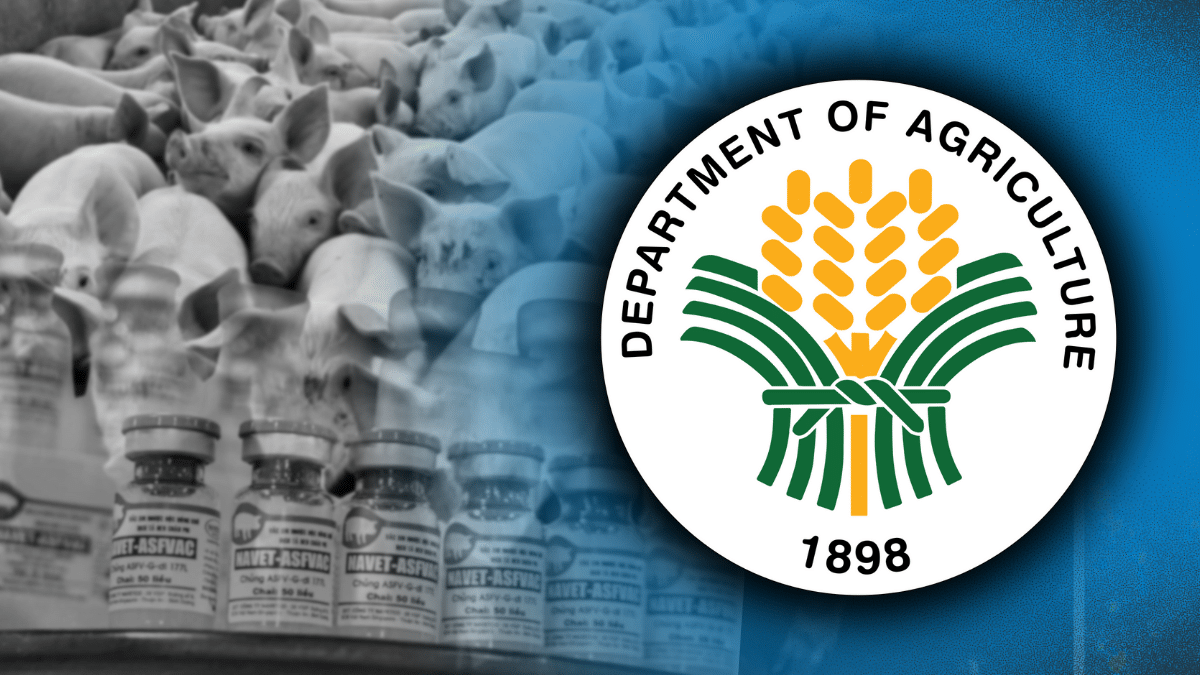
PHOTO FROM AFP/INQUIRER FILES
The remainder of the 600,000 doses of African swine fever (ASF) vaccines purchased from Vietnam is expected to be delivered within October, according to an official of the Department of Agriculture (DA).
So far, the country has received an initial 10,000 doses of live vaccines purchased via emergency procurement. These were administered to select hogs in Lobo town in Batangas province, the ground zero of ASF resurgence, last Aug. 30.
READ: DA expands coverage of ASF vaccine testing
Another 150,000 doses also arrived in the country recently, said Agriculture Assistant Secretary Arnel De Mesa, who is also the DA’s spokesperson.
“We expect [the additional 440,000] doses to be released within October to continue our vaccination efforts under the monitored release of the Food and Drug Administration,” he said in a radio interview with dzRH over the weekend.
Article continues after this advertisement
“Upon securing the necessary approval, we can expect the commercial release of vaccines from AVAC Vietnam so that these can be easily accessed by our commercial, semi-commercial and small-hold farmers,” he said in Filipino.
Article continues after this advertisement
Agriculture Assistant Secretary Constante Palabrica had said inoculated pigs in Lobo were being monitored to observe their conditions.
READ: Negros Occidental distributes farm animals to ASF-affected farmers
He said blood samples would be drawn from the hogs on the 14th day after vaccination to analyze whether they have produced antibodies to fight the virus.
Other manufacturers from the United States, South Korea, Vietnam and Thailand were seeking approvals to supply vaccines.
Losses at P100B
The DA carried out the controlled vaccine administration five years after recording the country’s first ASF outbreak, which resulted in the death of millions of hogs and losses in the billions of pesos.
The estimated industry-wide losses due to ASF were at least P100 billion. Meanwhile, the country’s total swine inventory dipped by 2.1 percent to 9.86 million heads as of September last year, according to the Philippine Statistics Authority.
ASF is a severe viral disease affecting domestic and wild pigs, according to the World Organization for Animal Health.
This highly contagious hemorrhagic viral disease does not pose a risk to human health, but it can destroy livestock production, leading to economic losses.
Apart from vaccinations, the DA is also putting up checkpoints in the northern and southern parts of the National Capital Region to minimize the spread of ASF. It has also approved higher indemnification for growers regardless of hog size.
Based on the Bureau of Plant Industry’s tally, there are active ASF cases in 15 regions, 32 provinces and 115 municipalities as of Aug. 21. INQ
